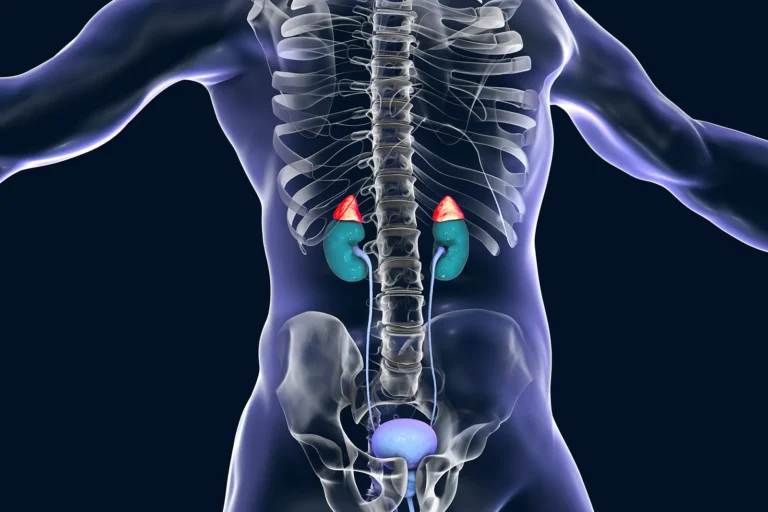Adrenal Cancer

Adrenal Cancer
Adrenal cancer, also known as adrenocortical carcinoma, is a rare and aggressive form of cancer that originates in the adrenal glands, which are located on top of each kidney. These glands produce hormones that regulate various bodily functions.
When cancer develops in them, it can lead to an overproduction of hormones, causing a range of symptoms such as high blood pressure, weight gain, and muscle weakness.
Causes
Adrenal cancer, also known as adrenal cortical carcinoma, is a rare and aggressive form of cancer that develops in the adrenal glands. While the exact cause is not fully understood, it is thought to result from genetic mutations that trigger uncontrolled cell growth in the adrenal cortex, the outer layer of the adrenal glands. These mutations can occur spontaneously or be inherited, and certain genetic syndromes, such as Li-Fraumeni syndrome or Beckwith-Wiedemann syndrome, are associated with a higher risk of adrenal cancer. Additionally, exposure to certain environmental factors, such as radiation or certain chemicals, may also contribute to its development.
Adrenal cancer typically presents with vague symptoms and is often diagnosed at an advanced stage, making early detection and treatment crucial for improved outcomes.
Diagnosis
Adrenal cancer is often diagnosed at an advanced stage through image testing, blood/urine tests, or lab analysis of the adrenal gland. Due to its aggressive nature and late-stage detection, the prognosis for adrenal cancer can be challenging, making early diagnosis and intervention crucial for improved outcomes.
Signs and Symptoms include:
- Muscle weakness
- Weight gain
- Pink or purple stretch marks on the skin
- Hormone changes in women that may cause excessive facial hair, hair loss on the head, and irregular periods
- Hormone changes in men that might cause enlarged breast tissue and shrinking testicles
- Vomiting
- Nausea
- Back pain
- Abdominal bloating
- Fever
- Loss of weight without trying
- Loss of appetite


